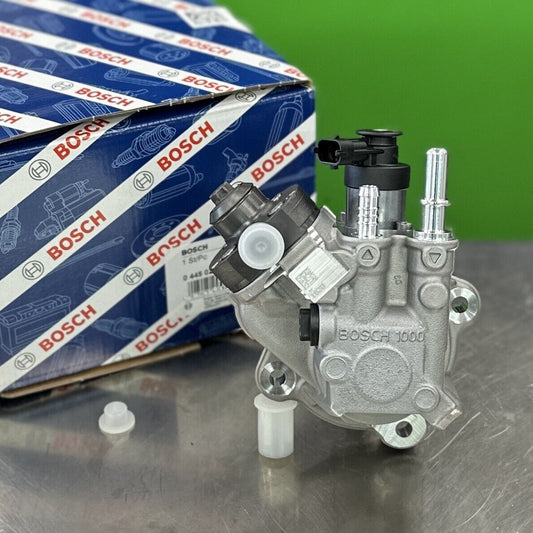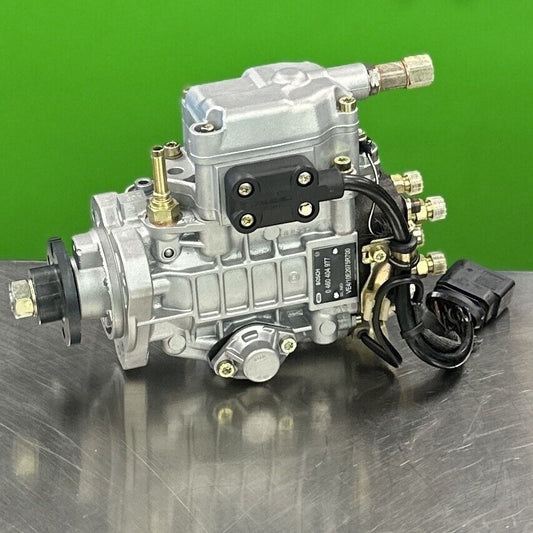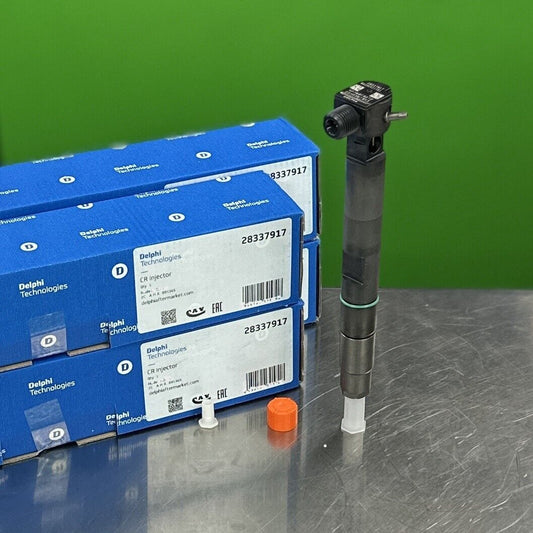GM 6.6L LBZ/LMM Bosch CR Injection Pump CP3 Troubleshooting: Diagnosing and Solving Common Problems
Are you experiencing issues with your GM 6.6L LBZ/LMM Bosch CR Injection Pump CP3? Don't worry, we've got you covered! In this article, we will delve into the troubleshooting techniques to diagnose and solve common problems that may arise with this critical component of your vehicle. Let's get to the bottom of these issues and get your engine running smoothly again!
Understanding the GM 6.6L LBZ/LMM Bosch CR Injection Pump CP3
Understanding the GM 6.6L LBZ/LMM Bosch CR Injection Pump CP3 is crucial for maintaining the performance of your vehicle. This component plays a vital role in the engine system, ensuring proper fuel delivery to support efficient combustion. The CP3 pump is responsible for pressurizing the fuel and delivering it to the injectors at the right moment for optimal engine operation.
When looking at the GM 6.6L LBZ/LMM Bosch CR Injection Pump CP3, it's essential to grasp its intricate workings. This pump operates at high pressures, typically ranging from 5,000 to 30,000 psi, depending on the engine's demands. It is designed to deliver precise amounts of fuel with each injection cycle, contributing to the overall performance and fuel efficiency of the vehicle.
The GM 6.6L LBZ/LMM Bosch CR Injection Pump CP3 is a durable and reliable component, but like any mechanical part, it can experience wear and tear over time. Understanding how this pump functions within the engine system can help you identify potential issues early on and take necessary measures to prevent major breakdowns.
Common Symptoms of Injection Pump Issues
When it comes to the GM 6.6L LBZ/LMM Bosch CR Injection Pump CP3, being able to identify common symptoms of issues is crucial. These symptoms can serve as early warning signs that something may be amiss with the injection pump. Let's delve into some of the telltale signs that could indicate potential problems:
- Engine Misfires: One of the most noticeable symptoms of injection pump issues is engine misfires. If you experience a rough idle or hesitation during acceleration, it could be a sign that the CP3 pump is not delivering fuel properly.
- Poor Fuel Efficiency: Another common indicator of injection pump problems is a decrease in fuel efficiency. If you find yourself visiting the gas station more frequently or notice a sudden drop in miles per gallon, the pump may be struggling to maintain optimal fuel delivery.
- Hard Starting: Difficulty starting your vehicle, especially in the morning or after it has been sitting for a while, can also point to issues with the injection pump. The pump may be failing to provide the necessary fuel for a smooth start.
- Engine Stalling: If your engine stalls unexpectedly, particularly when idling or coming to a stop, it could be a sign of a failing injection pump. Inadequate fuel delivery can lead to engine shutdowns at inconvenient times.
- Loud Knocking Sounds: Unusual knocking or ticking noises coming from the engine bay can indicate a problem with the injection pump. These sounds may suggest that the pump is struggling to maintain consistent fuel flow.
By being vigilant and recognizing these common symptoms, you can take proactive steps to address potential issues with the GM 6.6L LBZ/LMM Bosch CR Injection Pump CP3 before they escalate into more serious problems. Understanding these warning signs can help you keep your vehicle running smoothly and efficiently.
Diagnosing Fuel Delivery Problems
When it comes to diagnosing fuel delivery problems with the GM 6.6L LBZ/LMM Bosch CR Injection Pump CP3, attention to detail is crucial. One of the first steps in troubleshooting fuel delivery issues is to check for any visible leaks in the fuel lines or connections. A leak in the system can lead to a loss of fuel pressure, affecting the performance of the injection pump.
Another common issue that can arise is air entering the fuel system, causing disruptions in fuel delivery. This can result in rough idling, stalling, or a loss of power while driving. To address this problem, it is important to inspect the fuel lines and connections for any signs of air leaks and ensure they are properly sealed.
Furthermore, a clogged fuel filter can also lead to fuel delivery problems with the CP3 pump. Over time, debris and contaminants can accumulate in the fuel filter, restricting the flow of fuel to the injection pump. Regularly replacing the fuel filter as part of your maintenance routine can help prevent this issue and ensure smooth fuel delivery.
Additionally, issues with the fuel pressure regulator can impact the performance of the injection pump. A faulty regulator can lead to fluctuations in fuel pressure, causing engine hesitation or difficulty starting. Testing the fuel pressure regulator and replacing it if necessary can help resolve fuel delivery problems and improve the overall performance of the CP3 pump.
In some cases, the fuel injectors themselves may be the source of fuel delivery issues. If the injectors are clogged or malfunctioning, they may not deliver the correct amount of fuel to the engine, leading to performance issues such as rough running or decreased fuel efficiency. Inspecting and cleaning or replacing the fuel injectors can help address these issues and ensure proper fuel delivery to the engine.
Steps to Troubleshoot CP3 Pump Faults
When it comes to troubleshooting issues with the GM 6.6L LBZ/LMM Bosch CR Injection Pump CP3, following a systematic approach is crucial. By taking the right steps, you can effectively diagnose and resolve faults that may arise with this critical component of your vehicle.
Here are the essential steps to troubleshoot CP3 pump faults:
- Check for Fuel Contamination: Begin by inspecting the fuel for any signs of contamination or impurities. Contaminated fuel can lead to clogs and damage to the injection pump.
- Inspect Fuel Filters: Ensure that the fuel filters are clean and free from debris. Clogged filters can restrict fuel flow and put strain on the CP3 pump.
- Monitor Fuel Pressure: Use a pressure gauge to check the fuel pressure at various points in the system. Low fuel pressure can indicate a problem with the pump or fuel delivery system.
- Check for Leaks: Inspect the fuel lines, connections, and fittings for any signs of leaks. Even a small leak can affect the performance of the CP3 pump.
- Perform a Visual Inspection: Look for any visible signs of damage or wear on the pump itself. Cracks, corrosion, or leaks on the pump housing can indicate underlying issues.
- Test Pump Operation: Run diagnostics to test the functionality of the CP3 pump. Listen for unusual noises or vibrations that may signal a problem with the pump.
By following these steps and paying attention to the details, you can effectively troubleshoot CP3 pump faults and ensure the smooth operation of your GM 6.6L LBZ/LMM Bosch CR Injection Pump CP3.
Preventive Maintenance Tips for Longevity
When it comes to ensuring the longevity and optimal performance of your GM 6.6L LBZ/LMM Bosch CR Injection Pump CP3, preventive maintenance plays a crucial role. By following a few simple tips and practices, you can significantly extend the lifespan of this critical component of your vehicle.
One of the most important preventive maintenance tips is to regularly inspect and replace the fuel filter. A clogged or dirty fuel filter can put strain on the CP3 pump and impact its efficiency. By changing the fuel filter at recommended intervals, you can prevent debris and contaminants from reaching the injection pump.
Monitoring fuel quality is another essential aspect of maintaining the CP3 pump. Poor quality or contaminated fuel can lead to buildup and corrosion within the pump, causing potential issues. Make sure to use high-quality fuel from reputable sources to keep the injection pump running smoothly.
Additionally, checking for fuel leaks is crucial in preventing damage to the CP3 pump. Any leaks in the fuel system can not only lead to fuel wastage but also affect the performance of the injection pump. Regularly inspect fuel lines, connections, and seals for any signs of leakage and address them promptly.
Conducting routine inspections of the entire fuel system can help identify potential issues before they escalate. Look for any signs of wear and tear, loose connections, or damaged components that could impact the operation of the CP3 pump. Addressing these issues early on can prevent costly repairs down the line.
It is also advisable to follow the manufacturer's maintenance schedule for the GM 6.6L LBZ/LMM Bosch CR Injection Pump CP3. Regular servicing and checks as per the recommended intervals can help detect any emerging problems and address them proactively. This proactive approach can significantly enhance the longevity of the injection pump.
Frequently Asked Questions
-
What are the common symptoms of injection pump issues?
The common symptoms of injection pump issues include engine misfires, poor fuel efficiency, rough idling, difficulty starting the vehicle, and loss of power while driving. If you notice any of these signs, it is essential to have your injection pump checked by a professional mechanic.
-
How can I diagnose fuel delivery problems related to the CP3 pump?
To diagnose fuel delivery problems with the CP3 pump, you can perform a fuel pressure test, check for any leaks in the fuel lines, inspect the fuel filters for clogs, and ensure that the pump is receiving adequate voltage. If you suspect fuel delivery issues, it is crucial to address them promptly to prevent further damage to the injection pump.
-
What preventive maintenance tips can help prolong the life of the CP3 pump?
Regularly replacing the fuel filters, using high-quality fuel, keeping the fuel system clean, checking for any leaks, and following the manufacturer's recommended maintenance schedule are essential preventive maintenance tips to prolong the life of the CP3 pump. By practicing proper maintenance, you can prevent common problems and ensure the optimal performance of your vehicle's injection pump.



